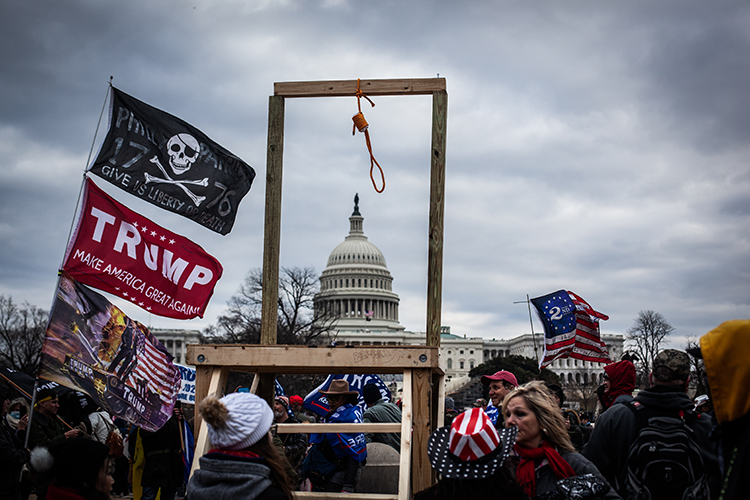Lawyer freed pending appeal of Jan. 6 conviction because of Supreme Court decision

A U.S. Supreme Court decision on the scope of an obstruction statute has led a judge to order the early release of a Georgia lawyer convicted in the Jan. 6, 2021, U.S. Capitol riot. (Photo by Shay Horse/NurPhoto via Getty Images)
A U.S. Supreme Court decision on the scope of an obstruction statute has led a judge to order the early release of a Georgia lawyer convicted in the Jan. 6, 2021, U.S. Capitol riot.
U.S. District Judge Dabney L. Friedrich of the District of Columbia ordered the release of suspended lawyer William McCall Calhoun Jr. of Americus, Georgia, pending appeal because of the Supreme Court’s ruling for a Jan. 6 defendant in Fischer v. United States, Law360 reports.
Calhoun was due to complete his 18-month sentence Aug. 7, according to Friedrich’s July 1 order. Calhoun was convicted of a felony for obstruction of an official proceeding—the certification of the 2020 election results. Friedrich, a federal judge in Washington, D.C., said Calhoun’s appeal of the felony charge was likely to result in a lower sentence.
Prosecutors had cited a Facebook post by Calhoun in which he bragged about occupying the Capitol and shutting down “stolen election shenanigans.” Calhoun had maintained in a radio interview that he entered the Capitol in a “peaceful protest.”
The obstruction law makes it a crime to “corruptly” alter, destroy, mutilate or conceal a record or document, with the intent to impair its integrity or availability for use in an official proceeding. A second prong of the law extends criminal liability to anyone who “otherwise” corruptly “obstructs, influences or impedes any official proceeding or attempts to do so.”
The Supreme Court’s June 28 decision in Fischer interpreted the second prong to require a showing that a defendant impaired the availability or integrity of records, documents, objects or other things used in an official proceeding or attempted to do so. According to SCOTUSblog, the ruling meant that the second prong only applied to evidence tampering, rather than all forms of corrupt obstruction of an official proceeding.
Federal prosecutors did not object to Calhoun’s early release. In a court filing, the government said release was warranted “in light of the recency and complexity of the issues left unresolved by Fischer.”
Calhoun was convicted of four misdemeanors in addition to the felony obstruction charge. They were entering and remaining in a restricted building or grounds; disorderly and disruptive conduct in a restricted building or grounds; disorderly conduct in a Capitol building; and parading, demonstrating or picketing in a Capitol building.
In a footnote, the government said Calhoun would still be subject to a guidelines sentence of 10 to 16 months in prison for the misdemeanors. The government also argued that an upward variance of an additional two months in prison was warranted when accounting for aggravating factors, including his “lack of remorse” and his belief that the Capitol riot was prompted by “heroes” and “patriots.”
Calhoun was temporarily suspended from law practice in November pending the appeal, according to 11Alive.com.



